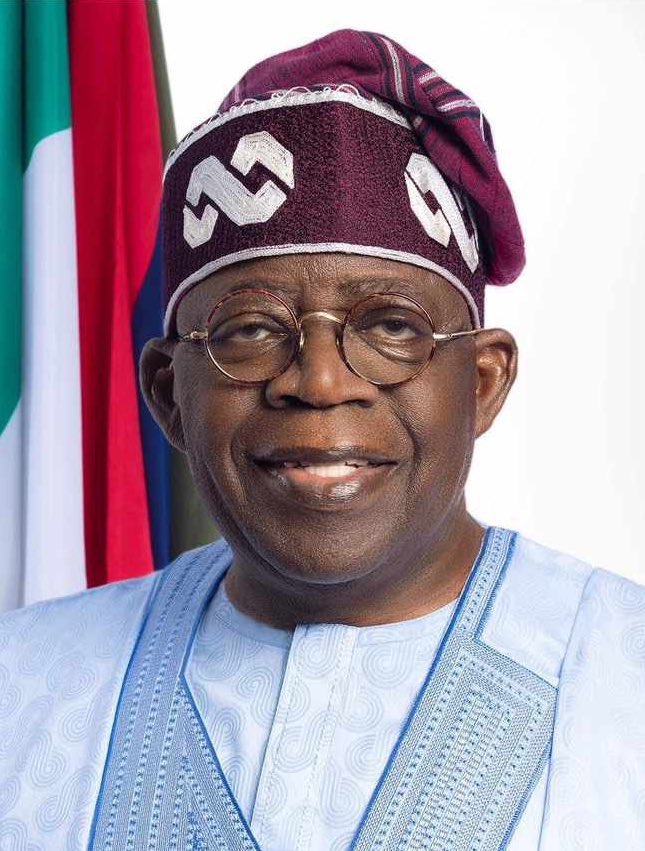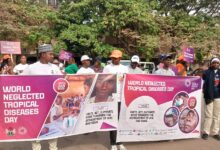FG Vows To Bring Back Migrated Doctors, Nurses, Others

The Special Adviser to the President on Health, Dr. Salma Anas has hinted that the health agenda of the Tinubu – led government would make the health sector so attractive that Health care professionals who had left the country in search of greener pastures would have no choice but to return.
Anas disclosed this on Tuesday, July 4, 2023, at the WHO-Nigeria Country Cooperation Strategy (CCS) Review Joint Stakeholders’ Feedback Workshop held in Abuja
According to her, “this government’s health agenda shall be hitched and defined by the concept of Universal Health Coverage (UHC) that makes universal coverage a primary objective towards new jobs creation that bring greater economic and social development to the Nigerian people.
“Consequently, the government shall address the lingering nation’s healthcare challenges, including inadequate health infrastructure, fragmentation, an overburdened workforce, poor insurance coverage (catastrophic out-of-pocket expenditures), high maternal and infant mortality, inadequate preventative care and dependence on imported medicines, commodities, equipment, and vaccines”.
She said, the President Bola Ahmed Tinubu’s health sector agenda, tagged the “Healthcare: A Matter of Right and Urgency” of the APC Renewed Hope mantra has an Action Plan for a Better Nigeria based on ten (10) foundation pillars which have “Make basic healthcare, education, and housing accessible for all” as a key deliverable for Nigerians.
She added that this was based on the fact that the Nigerian people constitute the most valuable treasure the country has, hence the need to foster a new society based on shared prosperity, tolerance, compassion, and the unwavering commitment to treating each citizen with equal respect and due regard.
The Special Adviser further stated that “the health needs of the citizens of this country are therefore prioritized as a fundamental human right and a matter of national security which the government shall greatly invest in for national growth, development, and sustainable prosperity.
“The whole perspective of the health sector agenda for this government is to position the system to be more responsive and accountable to the needs of the people that will positively contribute to the overall strategic growth and development from improved population health, barest reduction in preventable morbidity and mortality, general well-being that increase life-expectancy and potential productivity of the citizens as the greatest asset of the country.
“This health agenda is a social and moral pact the present government has with the people which it sees as a duty to honour and fulfill the mandate given by the Nigerians for the Renewed Hope progress and prosperity”, Anas said.
Speaking on the incessant brain drain plaguing the country’s health sector, she said, “We are all aware that Nigeria is currently faced with severe challenges of brain drain, even before the brain drain, our human resources for health were grossly inadequate. We are not yet there, so efforts will be made, geared towards ensuring that we address issues and enhance the capacities of our health institutions, both public and private sector to take us back to and leverage all the opportunities that will sustain human resources for health at all levels, particularly at the primary healthcare level in our communities.
“So, efforts are ongoing presently to address a lot of the issues, including having one on one replacement that’s immediate, to replace those that have exited and also efforts are ongoing to ensure that we have a motivated and vibrant health workforce that is retained and those that want to come back and those we are hoping for them to come back and continue to contribute to the health sector development”.
On his part, World Health Organisation (WHO) Nigeria Country Representative, Dr. Walter Moulombo informed that, the CCS was a medium-term strategic document that presents WHO’s vision for technical cooperation with a given member state, in support of the country’s national health policy, strategy, or plan.
Introduced in the year 2000, its purpose is to co-create a strategic agenda that aligns WHO’s collaboration with other United Nations bodies and development partners at the country level based on identified needs.
Moulombo disclosed that WHO in Nigeria had developed and successfully implemented 3 generations of the CCS. The current CCS which was originally developed in 2014, was reviewed in 2028 and extended to 2022 to respond to the Sustainable Development Goals (SDGs), in line with the Nigeria Economic Recovery and Growth Plan, the National Health Policy 2016, the National Strategic Health Development Plan II, the UN Sustainable Development Partnership Framework 2018-2022, the WHO Transformation Agenda, and the WHO’s 13″ Program of Work (GPW13).
He said this review was particularly remarkable as it comes during a political transition in the country which provides a potential policy change and transformation window given the opportunities presented by the COVID-19 pandemic, the primary health care reimagining program, the National Health Insurance Authority Act, and the Presidential Health Reform program.
On the lessons learnt from previous review meetings, he noted that “one key recurring challenge thrown at WHO during this ongoing review, is the need for WHO to be more innovative and agile to adopt a stronger coordination role as the leading authority in health in support of the country and other partners.
The WHO Representative, therefore, promised to strengthen strategic partnerships at the national and sub-national levels to promote coordination, accountability, sustainability, and value for money:
“This Joint workshop will amongst other outcomes, help to provide guidance towards the above and in addition proffer some answers to such difficult questions such as: “Why are the health indicators of the country not improving and what game-changing role should WHO be playing in the 4th Generation CCS, to positively impact health in Nigeria?
“With the assurance that it cannot be business as usual moving forward, the renewed mandate and resolutions from the just-concluded 76th WHA, the endorsement of changes advanced by the ARG to make country offices more agile, more fit-for-purpose, more resourced, and more empowered, we will strengthen strategic partnerships with you all at the national and sub-national levels to promote coordination, accountability, sustainability, and value-for-money.
“Finally, I am confident, that this strategic stakeholders’ engagement, will come up with new realities for joint strategic health agenda for WHO’s technical cooperation in Nigeria in the next 5 years so that jointly, we will promote health, provide health, protect health, power health, and perform for health”, he said.






